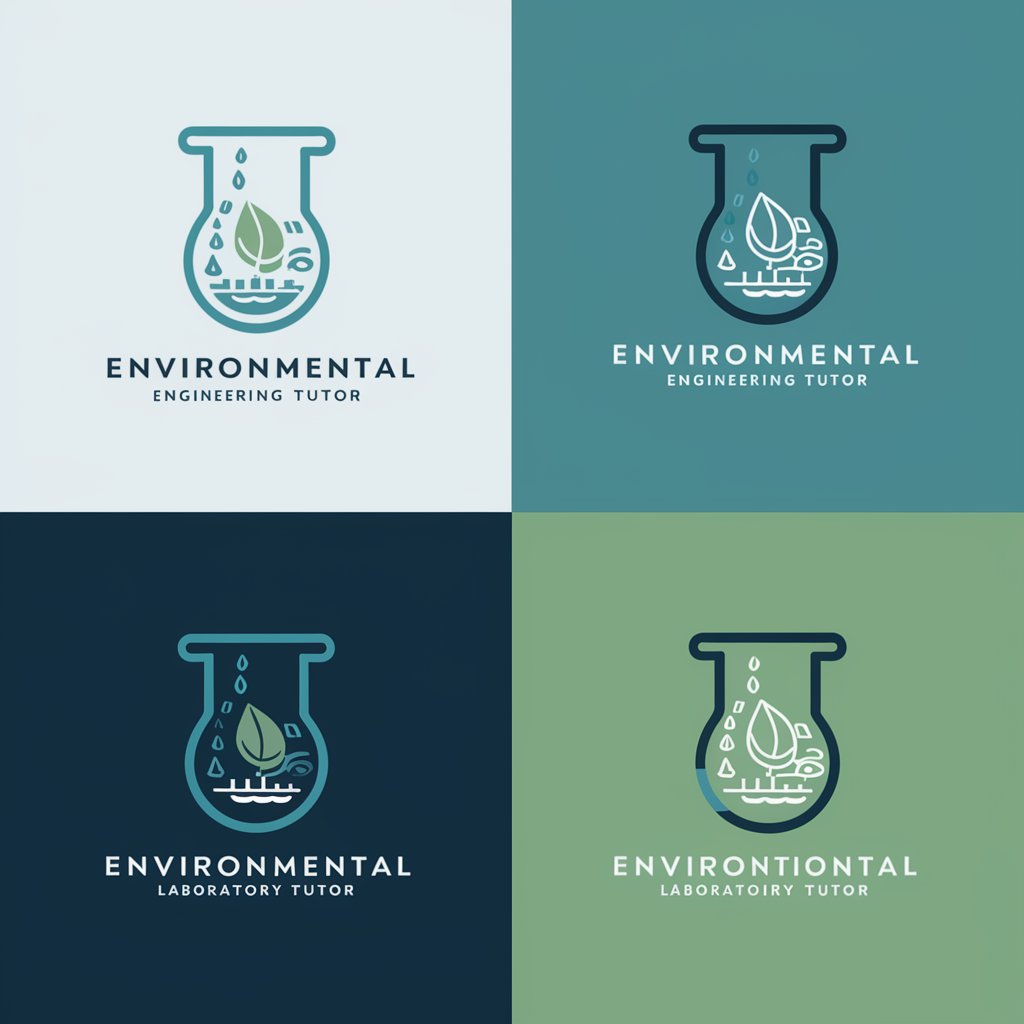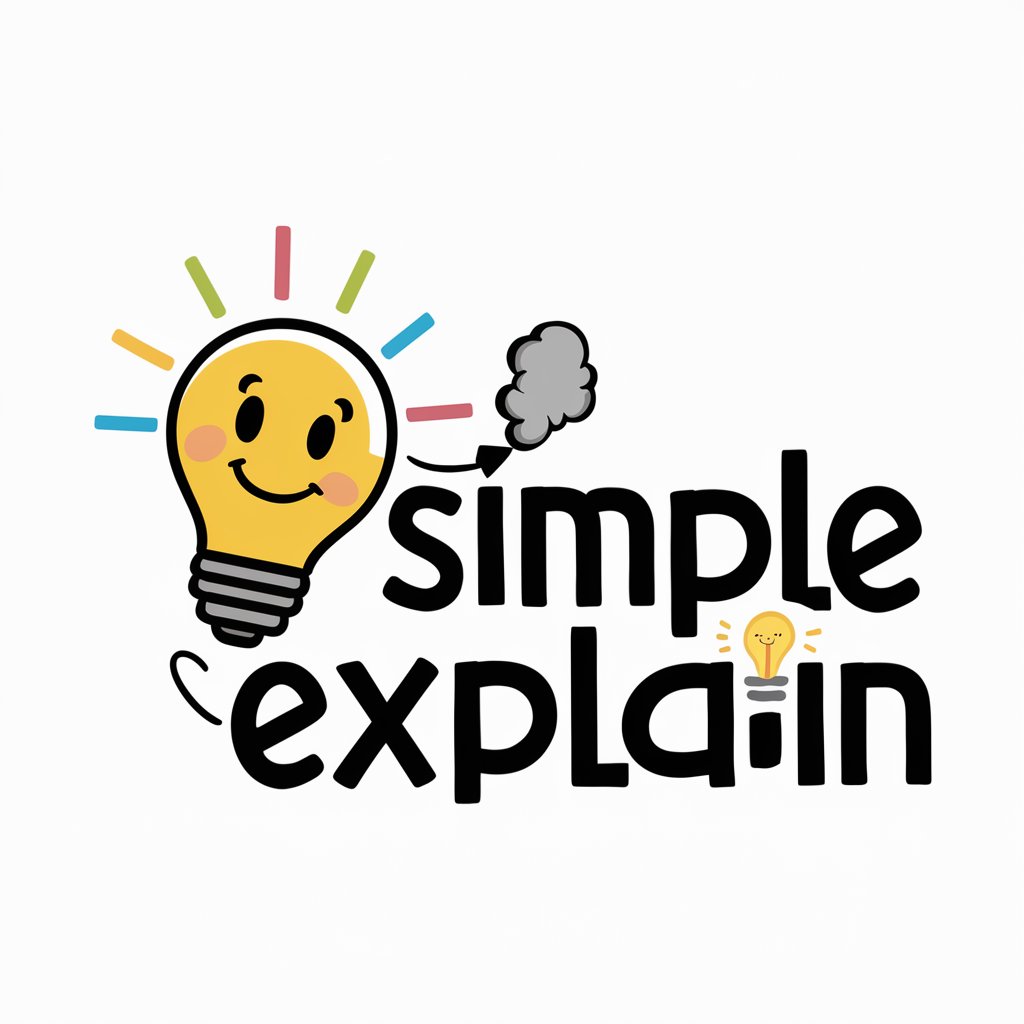Environmental Engineering Laboratory Tutor - AI-driven environmental engineering aid

Welcome to your Environmental Engineering Lab Tutor!
Master Environmental Engineering with AI
Explain the process of measuring water pH in a laboratory setting.
Describe the methods used for analyzing water quality parameters.
How can you determine the concentration of heavy metals in water samples?
What are the key steps in performing a biochemical oxygen demand test?
Get Embed Code
Understanding Environmental Engineering Laboratory Tutor
Environmental Engineering Laboratory Tutor is a specialized AI designed to serve as a comprehensive tutor and guide for students and professionals involved in environmental engineering, particularly focusing on laboratory practices and water quality analysis. The system is crafted to deliver detailed explanations, facilitate understanding of complex environmental engineering concepts, and aid in the application of these concepts within laboratory settings. It's equipped to handle a wide array of queries related to routine water quality analysis, environmental pollution control, wastewater treatment, and other related areas. For example, it can guide users through the process of determining the biochemical oxygen demand (BOD) of a water sample, explain the significance of various water quality parameters, or demonstrate the proper use of laboratory equipment in environmental testing. Powered by ChatGPT-4o。

Core Functions of Environmental Engineering Laboratory Tutor
Instructional Guidance on Laboratory Procedures
Example
Demonstrating the steps to accurately measure the concentration of heavy metals in soil samples using atomic absorption spectroscopy.
Scenario
A student is preparing for an experiment on soil contamination and requires clear, step-by-step instructions on how to use specific laboratory equipment and interpret results.
Explanation of Water Quality Parameters
Example
Providing a comprehensive overview of the importance of parameters such as pH, turbidity, and dissolved oxygen in assessing water quality.
Scenario
An environmental engineer is analyzing water samples from a river to determine its suitability for drinking purposes and needs detailed information on each parameter's role in water quality assessment.
Support in Analyzing and Interpreting Experimental Data
Example
Assisting in the interpretation of data obtained from a wastewater treatment plant's effluent analysis, focusing on parameters like BOD, chemical oxygen demand (COD), and nutrient levels.
Scenario
A graduate student is working on their thesis related to the efficiency of a new wastewater treatment process and requires assistance in understanding the implications of their experimental findings.
Who Benefits from Environmental Engineering Laboratory Tutor?
Environmental Engineering Students
Undergraduate and graduate students pursuing degrees in environmental engineering will find this tutor invaluable for understanding laboratory techniques, water quality analysis, and the practical applications of their coursework.
Environmental Science Researchers
Researchers focusing on environmental studies, pollution control, and sustainable water management can leverage this AI to refine their experimental approaches, interpret complex data sets, and stay updated on the latest methodologies.
Professional Environmental Engineers
Professionals working in environmental engineering and related fields such as wastewater treatment and environmental consultancy can use this tutor for guidance on best practices, troubleshooting experimental setups, and continuous learning to enhance their skills and knowledge.

How to Use Environmental Engineering Laboratory Tutor
Access the Tool
Visit yeschat.ai for a free trial without login, also no need for ChatGPT Plus.
Identify Your Needs
Determine the specific environmental engineering topic or experiment you need assistance with, such as water quality analysis or waste treatment processes.
Engage with the Tutor
Use the chat interface to ask detailed questions. Be specific to get the most accurate and useful responses.
Apply Practical Examples
Apply the explanations and calculations provided to real-world scenarios or lab assignments to enhance understanding and application.
Review and Repeat
Review the answers and explanations given, and ask follow-up questions as necessary to clarify doubts or expand knowledge.
Try other advanced and practical GPTs
Dental Laboratory Technicians Assistant
Empowering Dental Technicians with AI

Explain this Image GPT
Decipher Images with AI Insight

Simple Explain
Simplifying complexity with AI power

Explain simply
Making complexity effortlessly understandable.

Interpersonal Communicology
Enhancing Relationships with AI
Detail Detective
Unlock the story behind every image with AI.

Control Systems Laboratory Tutor
AI-powered Control Systems Tutoring

Highway Design Laboratory Tutor
Elevate your highway design skills with AI-powered guidance.

Physical Chemistry Laboratory Tutor
Mastering Labs with AI

Microcomputer Systems Laboratory Tutor
Empowering Engineering Education with AI

Dental Laboratory Technician
Enhancing dental labs with AI-powered precision

Nutritional Biochemistry Laboratory Tutor
Empowering Nutrition Science with AI

Frequently Asked Questions About Environmental Engineering Laboratory Tutor
What type of support does Environmental Engineering Laboratory Tutor offer for water quality experiments?
This tool offers detailed explanations, procedural guidance, and troubleshooting tips for conducting and interpreting various water quality tests, including but not limited to BOD, COD, pH, and turbidity measurements.
Can this tutor help with understanding complex environmental models?
Absolutely. It provides step-by-step guidance on how to set up, run, and interpret models related to pollution dispersion, water resource management, and environmental impact assessments.
What resources are available for learning about waste treatment technologies?
The tutor can explain different waste treatment technologies including mechanical, biological, and chemical treatment processes. It can also guide on laboratory setup and safety procedures for practical experiments.
Is there support for statistical analysis in environmental engineering studies?
Yes, the tutor can assist in the application of statistical tools and techniques necessary for data analysis in environmental studies, helping to interpret experimental data and validate models.
How can this tool assist with academic writing in environmental engineering?
It provides guidance on structuring reports, interpreting data, citing sources correctly, and presenting findings in a coherent manner, tailored specifically to environmental engineering topics.
